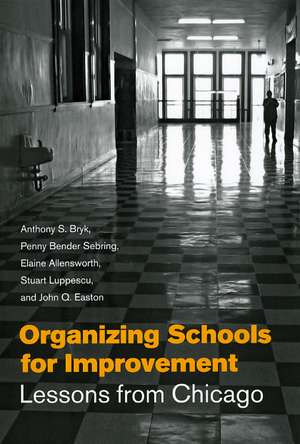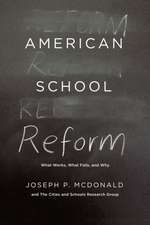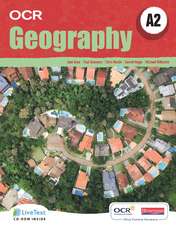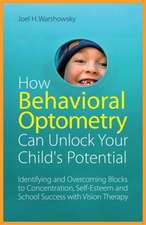Organizing Schools for Improvement: Lessons from Chicago
Autor Anthony S. Bryk, Penny Bender Sebring, Elaine Allensworth, Stuart Luppescu, John Q. Eastonen Limba Engleză Paperback – 14 ian 2010
In 1988, the Chicago public school system decentralized, granting parents and communities significant resources and authority to reform their schools in dramatic ways. To track the effects of this bold experiment, the authors of Organizing Schools for Improvement collected a wealth of data on elementary schools in Chicago. Over a seven-year period they identified one hundred elementary schools that had substantially improved—and one hundred that had not. What did the successful schools do to accelerate student learning?
The authors of this illuminating book identify a comprehensive set of practices and conditions that were key factors for improvement, including school leadership, the professional capacity of the faculty and staff, and a student-centered learning climate. In addition, they analyze the impact of social dynamics, including crime, critically examining the inextricable link between schools and their communities. Putting their data onto a more human scale, they also chronicle the stories of two neighboring schools with very different trajectories. The lessons gleaned from this groundbreaking study will be invaluable for anyone involved with urban education.
The authors of this illuminating book identify a comprehensive set of practices and conditions that were key factors for improvement, including school leadership, the professional capacity of the faculty and staff, and a student-centered learning climate. In addition, they analyze the impact of social dynamics, including crime, critically examining the inextricable link between schools and their communities. Putting their data onto a more human scale, they also chronicle the stories of two neighboring schools with very different trajectories. The lessons gleaned from this groundbreaking study will be invaluable for anyone involved with urban education.
Preț: 240.82 lei
Nou
Puncte Express: 361
Preț estimativ în valută:
46.12€ • 47.52$ • 38.64£
46.12€ • 47.52$ • 38.64£
Carte tipărită la comandă
Livrare economică 24 februarie-10 martie
Preluare comenzi: 021 569.72.76
Specificații
ISBN-13: 9780226078007
ISBN-10: 0226078000
Pagini: 328
Ilustrații: 72 line drawings, 11 tables
Dimensiuni: 152 x 229 x 23 mm
Greutate: 0.43 kg
Editura: University of Chicago Press
Colecția University of Chicago Press
ISBN-10: 0226078000
Pagini: 328
Ilustrații: 72 line drawings, 11 tables
Dimensiuni: 152 x 229 x 23 mm
Greutate: 0.43 kg
Editura: University of Chicago Press
Colecția University of Chicago Press
Notă biografică
Anthony S. Bryk is president of the Carnegie Foundation for the Advancement of Teaching and was founding senior director of the Consortium on Chicago School Research (CCSR), University of Chicago. Penny Bender Sebring is founding codirector of CCSR, the Urban Education Institute, University of Chicago. Elaine Allensworth is director for statistical analysis at CCSR. Stuart Luppescu is chief psychometrician at CCSR. John Q. Easton is Distinguished Senior Fellow at the Spencer Foundation and former executive director of the Consortium on Chicago School Research (CCSR) at the Urban Education Institute, University of Chicago.
Cuprins
Acknowledgments
Prologue: A Tale of Two Schools
Introduction: A Rare Opportunity to Learn about School Improvement
1 Developing Appropriate Outcome Indicators
2 A Framework of Essential Supports
3 Testing the Framework of the Essential Supports
4 Probing Deeper: Organizational Mechanisms
5 Trust, Size, and Stability: Key Enablers
6 The Influences of Community Context
Summary and Conclusions
Appendix A: Socioeconomic Status Factor
Appendix B: A Value-Added Indicator: A School’s Academic
Productivity Profile
Appendix C: Overview of the Fourteen Indicators for the Five Essential Supports
Appendix D: Probability Experiment to Evaluate Results Presented in
Figure 3.3
Appendix E: Interview Questions from the Project on Human Development
in Chicago Neighborhoods
Appendix F: Coefficients from Analyses of Leadership in Chapter 4
Appendix G: Value-Added Replication Results for 1997 through
2005
Appendix H: Efforts of the Consortium on Chicago School Research to
Build More Productive Ties between Research, Practice, and Policy
to Improve Practice
Notes
References
Index
Prologue: A Tale of Two Schools
Introduction: A Rare Opportunity to Learn about School Improvement
1 Developing Appropriate Outcome Indicators
2 A Framework of Essential Supports
3 Testing the Framework of the Essential Supports
4 Probing Deeper: Organizational Mechanisms
5 Trust, Size, and Stability: Key Enablers
6 The Influences of Community Context
Summary and Conclusions
Appendix A: Socioeconomic Status Factor
Appendix B: A Value-Added Indicator: A School’s Academic
Productivity Profile
Appendix C: Overview of the Fourteen Indicators for the Five Essential Supports
Appendix D: Probability Experiment to Evaluate Results Presented in
Figure 3.3
Appendix E: Interview Questions from the Project on Human Development
in Chicago Neighborhoods
Appendix F: Coefficients from Analyses of Leadership in Chapter 4
Appendix G: Value-Added Replication Results for 1997 through
2005
Appendix H: Efforts of the Consortium on Chicago School Research to
Build More Productive Ties between Research, Practice, and Policy
to Improve Practice
Notes
References
Index
Recenzii
"Organizing Schools for Improvement has some pretty convincing conclusions on what characteristics separate successful schools from unsuccessful ones. The book offers important advice for people involved in any school, regardless of location or student background."
"Striking in its attention to the influence of community and educator participation in school reform, and sobering in its assessment of some of the neighborhoods where reform was most difficult to attain, the book Organizing Schools for Improvement: Lessons from Chicago is an essential read. . . . Bryk et al. provide a rigorous and compelling empirical study of the possibility for school reform and the degrees of compromise, particularly in contexts where extreme poverty and racial and ethnic isolation prevail."












